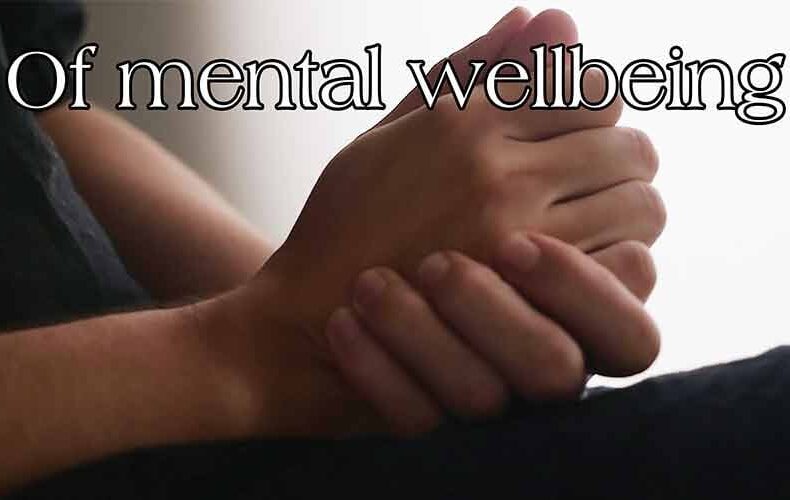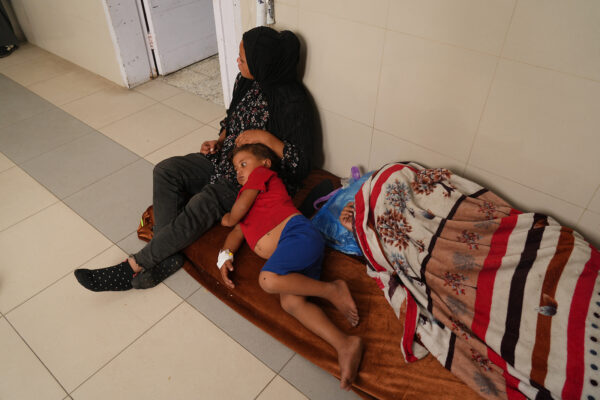
Wounded healers
> “The physician in me can never heal anything unless he feels the pain of the patient in himself.”
> — Carl Jung
—
My first psychotherapy patient in the United States taught me a lot about suffering. We met for almost two years, and during that time, I despaired of ever helping her. When she moved to another city, I felt like an abject failure. She seemed to feel the same way. Although frequent thoughts of suicide had ceased, she still experienced depression from time to time. Anxiety was still present, albeit less crippling—she no longer required hospitalization for violent anxiety attacks while we worked together.
I now realize that it was my own unrealistic expectations that had been torturing me.
In our final meeting, she revealed how our work together had saved her life after the sudden death of her teenage son. That moment reshaped my understanding of healing and hope.
—
A few years ago, our small psychiatric community in Pakistan was shaken by the murder-suicide of a psychiatrist and his physician daughter in Multan. Like many others, I was deeply upset but not entirely surprised. There are very few of us battling a sea of despair and urgent need.
Pakistan has fewer than 1,000 psychiatrists serving a population of 260 million people. Most are concentrated, as in much of the world, in and around large cities. This ratio translates to roughly one psychiatrist for every 250,000 people—far below the World Health Organization’s recommendation of 1:15,000.
The situation is even more bleak in remote rural areas, where the psychiatrist-to-population ratio can plummet to one per million or more.
Qualified psychologists, who provide psychotherapy and various psychological testing, are similarly scarce outside major urban centers. Those available are often booked weeks in advance, leaving no room for emergencies.
Psychiatric social workers and nurses are almost nonexistent outside a handful of large government hospitals in Lahore, Karachi, and Islamabad.
—
Is it any wonder then that people suffer and die daily from common, treatable psychiatric conditions?
There is, however, a silent and far deadlier issue: those of us fighting the rising tide of mental illness in Pakistan—and colleagues around the world—are being steadily overwhelmed. Sometimes, this pressure leads us to despair and, tragically, even suicide.
This is not just a Pakistani problem. When I was a medical director at a large psychiatric organization in the United States, one of our psychiatrists took his own life. We had all seen the signs: distress, irritability, anger. One day, he came to work with his head shaved, dark circles under his eyes as if he hadn’t slept in days, and wearing soiled, wrinkled clothes. We whispered and worried about him. Despite our concerns and discussions about how to help, before we could act, he was gone.
Another healer lost to mental illness.
—
Pakistan simply cannot afford to lose our healers, especially with our already minuscule mental health resources.
That is why at both our large public hospitals in Lahore, we prioritize the mental well-being of our workforce. Over the last two decades, we have witnessed a gradual but steady shift in perceptions about mental illness in Pakistan.
When I began working here more than 15 years ago after returning from the US, psychiatric illnesses were often joked about and belittled—even by medical professionals. This dismissive and sometimes insulting attitude was especially infuriating.
Slowly, almost imperceptibly, this began to change as we worked to help people understand that mental health and physical health go hand in hand.
My own university colleagues started approaching me—secretly at first—for help with their children, spouses, or parents. They feared stigma and ridicule if word got out.
As we supported them, we emphasized that mental health deserves the same attention and respect as physical health. We demonstrated that openly talking about mental health is not only important but necessary.
Today, mental health is no longer a taboo topic on our university campuses—or any campus in Pakistan.
—
Now, the demand for mental healthcare is rising steadily, and there are far too few of us to meet it.
Some colleagues respond by working harder, seeing 50, 60, even 100 patients in a single afternoon. Unfortunately, this only worsens the problem of poor care: insufficient time with each patient can lead to inaccurate assessments, rushed diagnoses, and an overreliance on medication, which has its own risks.
Moreover, working at this pace—six or seven days a week—eventually leads to burnout, and sometimes even depression and mental health issues among the healers themselves.
There are no easy solutions, but continuing to talk about mental health is a start.
—
This week, on World Mental Health Day, we organized a wellness walk on our campus, involving senior faculty from all disciplines and our students.
My psychiatry colleagues and I make a special effort to be available for our hospital staff and their families—whether through consultations for themselves or loved ones, or simply a chat over a cup of tea between classes.
These small gestures help demystify and destigmatize mental health.
We talk and write about mental health whenever and wherever we can, and it is clear that people are paying attention.
For better or worse, mental illness is being discussed more openly—in newspapers, on media platforms, in schools, colleges, and homes.
—
We also continue training more people to deliver efficient, high-quality mental health services to those most in need.
This includes exploring innovative models such as training non-doctors—Lady Health Visitors, nurses, and even laypeople—to provide simple, cost-effective mental health interventions.
While Pakistan faces the same healthcare capacity challenges as much of the developing world, we are making steady progress.
—
Whenever I feel frustrated or overwhelmed by the feeling that we are not doing enough, I take a deep breath and remind myself—and my students—of a verse from the Quran:
**“Whoever saves one life, it is as if he has saved all of humanity.”**
This keeps me going.
—
*By focusing on empathy, persistence, and collective effort, we can hope to build a more robust mental healthcare system that serves all people—no matter where they live.*
https://www.thenews.com.pk/tns/detail/1350045-wounded-healers
相关资源
You may be interested
Study: reading can save your life
Avid readers may feel there’s nothing better than diving into...
Why some adults never want to have sex? Science decoded
**Life Without Sex: Insights from a Landmark Study on Lifelong...
The morally gray world of ‘Breaking Bad’ explained
**The Morally Gray World of ‘Breaking Bad’ Explained** *By Vinita...
 The New York Times
The New York Times
- Pakistan Strikes Afghanistan in ‘Open War’ Against Taliban Regime 2026 年 2 月 27 日 Elian Peltier and Safiullah Padshah
- Trump’s Shields Are Down 2026 年 2 月 27 日 Carlos Lozada
- Green Party Defeats Labour in U.K. Special Election, in Blow to Starmer 2026 年 2 月 27 日 Michael D. Shear
- Pentagon Fires Another Laser at Drone, Prompting New Air Closure 2026 年 2 月 27 日 Karoun Demirjian, Kate Kelly, Eric Schmitt and Chris Cameron
- Germany’s Oil and Gas Output Is Dwindling as Prices Rise 2026 年 2 月 27 日 Stanley Reed and Maximilian Mann
- After F.B.I. Raid, Los Angeles School Board Discusses Superintendent’s Future 2026 年 2 月 27 日 Dana Goldstein and Shawn Hubler
- Netflix Backs Out of Bid for Warner Bros., Paving Way for Paramount Takeover 2026 年 2 月 27 日 Lauren Hirsch, Michael M. Grynbaum and Benjamin Mullin
- Hillary Clinton Denies Knowing Epstein or His Crimes in a Tense Deposition 2026 年 2 月 27 日 Annie Karni
- Mamdani Meets Again With Trump, Emerging With Two Unexpected Victories 2026 年 2 月 27 日 Dana Rubinstein, Nicholas Fandos, Sally Goldenberg and Tyler Pager
- Google Workers Seek ‘Red Lines’ on Military A.I., Echoing Anthropic 2026 年 2 月 27 日 Tripp Mickle



Leave a Reply